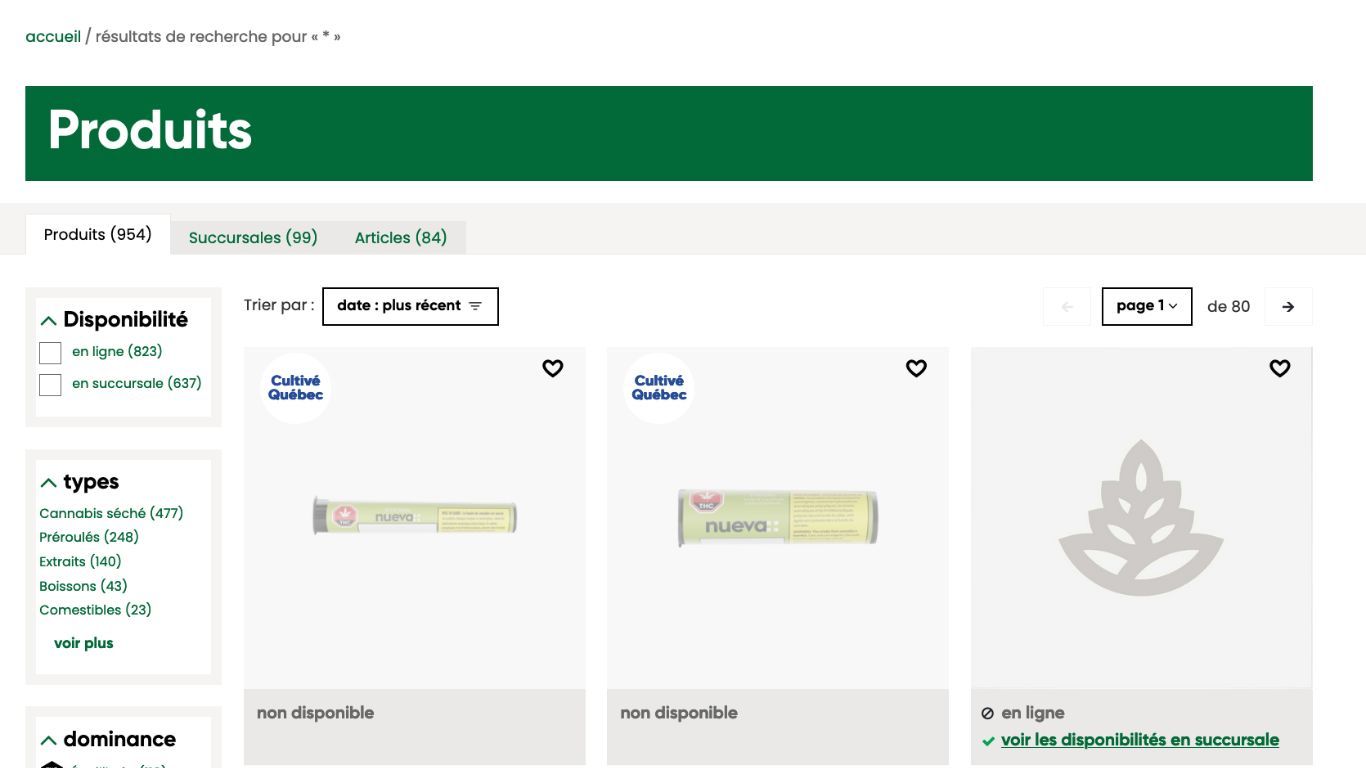
A group of legal advisors and cannabis consultants is launching a class action suit against the Société québécoise du cannabis (SQDC), alleging the provincial cannabis agency does not comply with the Consumer Protection Act (CPA).
The organization, Groupe SGF, is bringing the class action to court on behalf of the plaintiff, Gabriel Bélanger. Bélanger argues that the SQDC forces people to make “blind purchases” of cannabis products listed on their website.
“All cannabis products which are sold online and which have the mention “strain rotating” in their description sheet do not comply with the CPA since it provides that consumers must have access to a description which includes the characteristics and technical specifications,” says a press release from Groupe SGF. “By not allowing consumers to know what variety is in the product when ordering, the SQDC forces consumers to make blind purchases.”
Groupe SGF says their goal with this collective action is justice for cannabis consumers. The class action includes anyone who has purchased cannabis in the “dried flower” and “pre-rolled” categories for which the strain displayed on the SQDC website has been “strain rotating” since October 17, 2018.
“The SQDC, a state-owned company, appears to be violating its own Consumer Protection Act, and it seems abnormal to us that cannabis consumers in Quebec are forced to make blind purchases when they buy cannabis on the only legal cannabis sales site in the province,” said Maxime Guérin, a lawyer with Groupe SGF.
Groupe SGF is a Quebec law firm specializing in the cannabis industry.
Bélanger and Guérin are involved in another cannabis-industry-related class action suit filed in 2023 alleging that several Canadian banks have engaged in financial discrimination against legal cannabis businesses.
SQDC Public Affairs and Corporate Communications officer Vanessa Roland Director confirmed with StratCann that it has received the motion to exercise a class action related to products whose strain “rotates”, and says it contends to contest the application.
“The SQDC will take the time necessary to properly analyze the matter. However, at first sight, the company disagrees with the applicant’s claims and intends to contest the application.
“The SQDC does indeed sell rotating-strain products. The company clearly mentions this special feature on the information sheets for the products concerned and, more importantly, does not require anyone to choose these products. Customers in search of a specific strain enjoy access to a broad range of single-strain products.
“In addition, dropping rotating-strain products would limit consumers’ ability to choose. Several rotating-strain products are among the most affordable for customers. Removing them would run counter to the interests of consumers seeking these products. It should also be borne in mind that that if the SQDC is to fulfill its mission of migrating customers from the illegal market while maintaining a focus on health protection, the company needs to meet its customers’ varied needs.
“Furthermore, removing these products would be detrimental to the SQDC’s small producers, particularly the Québec-based and artisanal ones, whose rotating-strain products provide a way to make themselves known and sell their production despite having smaller harvests.
“We also note that similar approaches exist in other business contexts. Take, for example, spontaneous chef’s menus in high-end restaurants or cook’s choice meals at rotisseries, where the main is either a breast or a leg as determined by the cook. Customers without a preference can save money while helping the rotisserie prevent waste. Consequently, the SQDD defends the relevance of its offer of rotating-strain products and hopes they will remain an option for its customers.”
Note: This article has been edited to add comments from SQDC.











